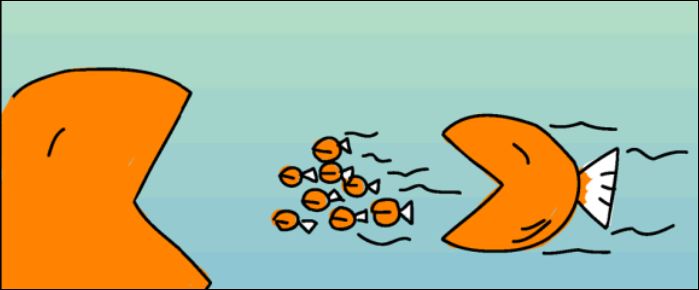I’ve had a variety of sales jobs in my career and have dealt with some great people … and some world-class jerks. Not just difficult and demanding people, but unethical, bullying, liars at Fortune 100 companies.
One time, a powerful VP demanded that my company buy-back $1.2 million of our material due to a cosmetic issue that did not affect the performance of their end product. In fact, the defect would not even be visible to their consumer. It was a dicey situation. Yes, we were “out of specification,” but this was also going to be a painful financial hit for my company. It was like being ticketed for going 56 miles per hour in a 55 mph zone.
In the end, we paid an $850,000 claim for the products that were made from the defective material.
I later found out this VP secretly sold the defective products to his customer any way, simply adding our claim payment to his bottom line (and annual bonus payment) through some accounting jujitsu. My customer loved bragging about his cleverness to demonstrate the power he could wield over my company.
The dude was eventually fired for this type of behavior, but that did little to comfort me when I still had to work with him every day. And yet, I really had no choice but to take it or quit. This guy was personally responsible for the acquisition of $1.5 billion of my company’s products — at that time, 10 percent of my employer’s total revenue! I had a one-line job description: Don’t lose the account.
I knew that I would only be in the sales position for a few years at the most, so I decided to weather the storm and approach the challenge patiently and calmly, as long as my own ethics or any laws were not compromised.
I realized that the customer is NOT always right. But the customer is always the customer. I was the one who had to adapt to survive and compete.
Fortunately, this is an extreme example but the point is, we can’t always demand that a customer — even a really bad one — change to conform to our needs and processes. Only we can change to adopt to the customer’s needs … or, if it gets too bad, quit.
Understanding this wisdom is difficult but a key to success in a fiercely competitive world.
This story came to mind because last week we had a debate on {grow} about the customer demands for rapid online service, even from hotels, restaurants, and other providers who are on the “value” end of the product line. This is an unfortunate development but they really only have one choice: Figure out how to adapt to the customer service needs AND maintain a low cost structure. They’re not going to be able to dictate customer expectations and still compete in the long term.
I’m currently working with a supplier that is imposing new processes that will take up more of my time and dramatically hurt my cash flow. As a business partner, I want to cooperate and make the whole “system” better, but when I point out that their service levels are declining and the value of these new processes seems to be flowing in only in their direction, their response is defensive instead of responsive. And you know … they might be right and I might be wrong. I’m not perfect. But I’m still the customer.
They may get away with it for awhile if the switching costs are high, but in general the information flow of the web has dis-intermediated many traditional competitive hurdles. It’s easier than ever to find new suppliers for most goods.
In the end, all of us who have to compete for a living know we have just one true source of competitive advantage —
LISTEN to our customers more intently than our competitors,
DISCOVER un-met and under-served needs, and
RESPOND more rapidly and effectively.
That’s it. The customer is the customer. Adapt or die. Right?
